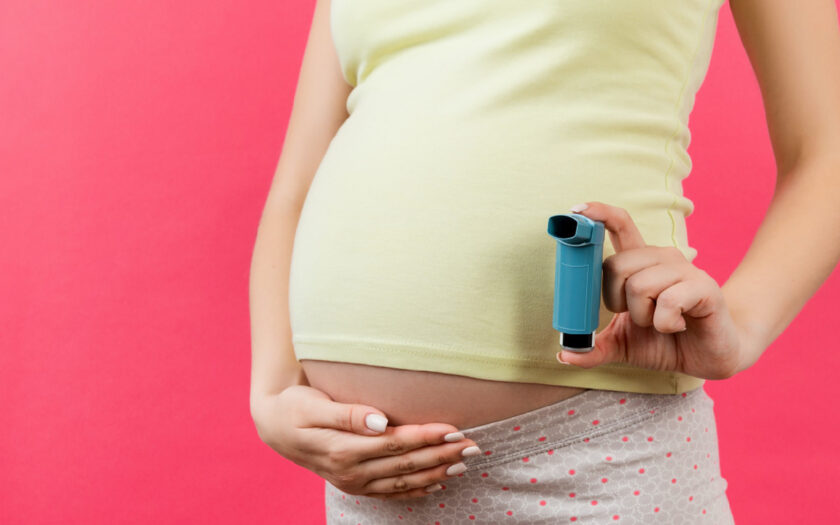Heartburn is a burning sensation and discomfort in the chest area that often spreads up the throat. It usually intensifies after eating food, especially fatty, spicy or sour food, as well as in a horizontal position or when bending the body forward.
Why do pregnant women experience heartburn?
Heartburn during pregnancy occurs in many women due to various physiological changes occurring in the body during this time. Here are some of the main reasons why heartburn may occur in pregnant women:
- increased pressure on the stomach. During pregnancy, an enlarged uterus can put pressure on organs in the abdomen, including the stomach. This can cause the sphincter between the esophagus and stomach to become compressed, causing stomach contents to be pushed back into the esophagus, causing heartburn;
- hormonal changes. During pregnancy, levels of the hormone progesterone may increase. Progesterone relaxes smooth muscle, including the sphincter between the esophagus and stomach, which can increase the reflux of acid from the stomach back into the esophagus;
- increase in blood volume. During pregnancy, blood volume increases, which can lead to increased production of stomach acid and increased pressure in the stomach, which in turn contributes to heartburn;
- compression of neighboring organs. As the uterus grows, it can put pressure on nearby organs, including the stomach and esophagus, which can contribute to heartburn;
- changes in diet and lifestyle. Pregnant women often change their eating habits, which may include eating more foods that are high in fat or acid, which can make heartburn worse. Additionally, lifestyle changes such as eating before bed or not getting enough physical activity can also contribute to heartburn.
All of these factors, taken together or individually, may contribute to the occurrence of heartburn in pregnant women. If heartburn becomes excessively painful or frequent, it is important to discuss it with your doctor for advice on managing symptoms.
In what trimester does pregnant women experience heartburn?
Heartburn during pregnancy can occur at any trimester, but it’s most common during the later stages of pregnancy, particularly in the second and third trimesters. This is because as the pregnancy progresses, the growing uterus puts pressure on the stomach, causing stomach acids to reflux into the esophagus more easily.
In the first trimester, hormonal changes, such as increased levels of progesterone, can also contribute to relaxation of the lower esophageal sphincter (LES), the muscular valve that normally prevents stomach acid from flowing back up into the esophagus. This relaxation can lead to heartburn or acid reflux symptoms, though it tends to be less common and less severe than in later stages of pregnancy.
Overall, heartburn and acid reflux symptoms may vary from woman to woman during pregnancy, and some may experience it more frequently or severely than others. It’s essential for pregnant women experiencing heartburn to speak with their healthcare provider about managing symptoms and finding safe and effective treatment options during pregnancy.
How long does a heartburn attack last in pregnant women?
The duration of a heartburn attack in pregnant women can vary depending on various factors, including the severity of symptoms, individual tolerance levels, and any interventions taken to alleviate discomfort. In general, heartburn episodes during pregnancy can last anywhere from a few minutes to several hours.
Mild cases of heartburn may resolve relatively quickly, especially with simple lifestyle modifications or over-the-counter antacids. However, more severe or persistent episodes may last longer and may require more aggressive management strategies.
It’s essential for pregnant women experiencing frequent or severe heartburn to discuss their symptoms with their healthcare provider. They can provide guidance on managing symptoms, recommend safe and appropriate treatment options, and monitor for any underlying conditions that may be contributing to heartburn. Additionally, healthcare providers can offer personalized advice based on individual health factors and pregnancy stage.
How to reduce heartburn in pregnant women?
Reducing heartburn in pregnancy can be achieved with a few simple strategies to help alleviate symptoms and discomfort. Here are some of them:
- Changing your diet. Avoid spicy, fatty and acidic foods, which can aggravate heartburn. Prefer easily digestible foods rich in fiber, such as fruits, vegetables, breads and cereals.
- Eat small meals. Try eating frequently, but in smaller portions. This can relieve pressure on the stomach and reduce the likelihood of heartburn.
- Avoid eating before bed. Try not to eat a few hours before bed to give your stomach time to digest food and reduce the risk of nighttime heartburn.
- Maintain an upright position. After eating, remain upright for several hours. This will help prevent stomach contents from flowing back into the esophagus.
- Avoid strong drinks. Limit your intake of caffeine, alcohol, and carbonated drinks, as they can worsen heartburn.
- Pillow for support. Sleeping with a pillow or two under your head can help prevent stomach contents from flowing back into your esophagus.
- Take antacids. Your doctor may recommend pregnancy-safe antacids to relieve heartburn symptoms. However, it is important to consult your doctor before starting any medications.
- Wear loose clothing. Clothing that presses on your stomach can increase discomfort and contribute to heartburn. Give preference to loose, non-squeezing clothing.
Each woman may have a different effective strategy for reducing heartburn, so it’s important to try different methods and find the ones that provide the most relief. If heartburn becomes excessively painful or frequent, be sure to discuss it with your doctor.



